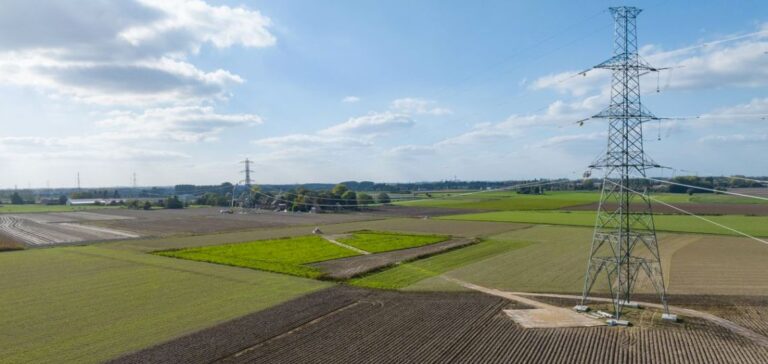France and Belgium have announced the doubling of their electricity exchange capacity on their border high-voltage lines, a nearly 10-year-old project that is invaluable in getting through a winter when France is expected to run out of power.
Created in 1974, this 43 km long border interconnection between Avelgem (Belgium) and Avelin, in France (North), will be able to supply 6 million homes and will provide “greater Franco-Belgian electrical solidarity, as of this winter”, according to the managers of the electricity transmission networks for the
France, RTE, and Belgium, Elia.
They inaugurated, at the foot of the lines in Tournai (Belgium), the reinforcement of this electrical interconnection whose power has been doubled, from 3 GW to 6 GW.
This project initiated in 2011 “also contributes to the European objectives of decarbonization by facilitating the integration of renewable energy”, especially from wind power in the North Sea, said Chris Peeters, CEO of Elia.
Due to a lack of availability of its nuclear park, “this winter, France will be largely importing electricity” from its European neighbors, explained Xavier Piechaczyk, chairman of the board of RTE.
For the first time in 42 years, France will be a net importer of electricity this year from its Belgian neighbors, but also from Germany, Spain, and the United Kingdom, due to a low level of nuclear power production, which raises fears of possible power shortages, especially in January.
“We seek to help each other,” assured Chris Peeters, at Elia, recalling that in 2018 Belgium had benefited from the electricity sent by France when his country had itself faced problems in its nuclear park, just before the winter.
France has about 50 interconnections at its borders, such as the Avelgem-Avelin interconnection, which was commissioned in its new configuration a few weeks ago.
The interconnection, which cost a total of 90 million euros, shared equally between the two operators, incorporates high-performance cables that allow more electricity to be transported without having to build new lines.





















